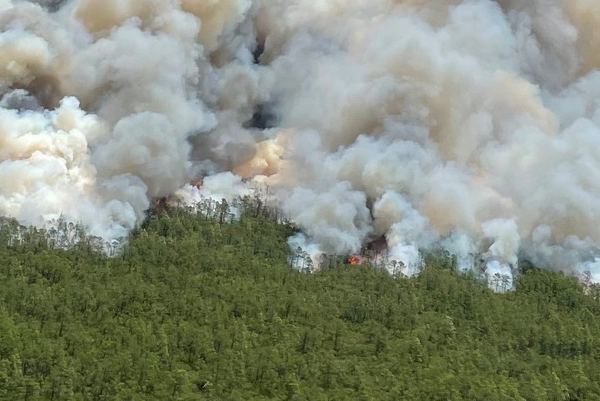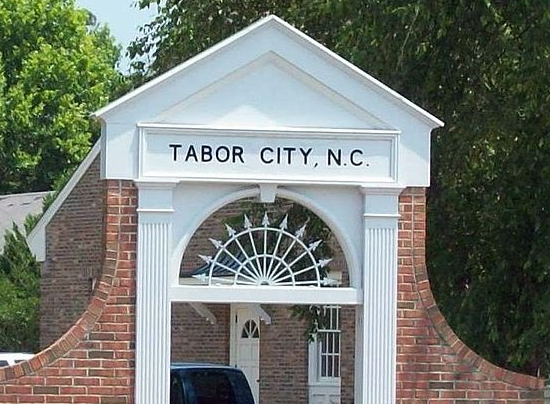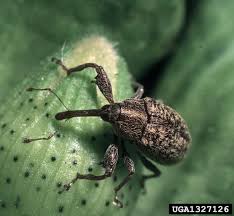Courtesy N.C. Forest Service
Those who have felt the warmth of a fire and enjoyed its friendly glow understand that fire is not always a devastating blaze. Our ancestors considered fire to be a basic element, the same as air, water and earth. Long ago, they learned to use fire and to control it. Fire was, perhaps, their first tool.
Most of us are careful with fire. We build fires in the right places, at the right time. We keep a fire at the proper size and put it out before leaving it. Some of us don’t, which can result in catastrophic wildfires. Wildfires can do terrible damage. With North Carolina’s growing population and wildland urban interface, wildfire risk also grows. You are the best defense against wildfire.
The following practices can help prevent wildfires.
Debris Burning
Check for any burning bans or fire restrictions that may be in effect for your area. Some communities allow burning only during specified hours while others forbid it entirely. Make sure to get a valid burn permit. Contact your NCFS county ranger’s office for the names and locations of the nearest local permitting agent or use our online burning permit system.
Keep an eye on the weather. Don’t burn on dry, windy days. Consider alternatives to burning. Some types of vegetative debris, such as leaves, grass and stubble, may be of more value if used for compost.
It is always illegal to burn household trash or anything other than vegetative matter.
Burning Agriculture Residue and Forestland Litter
Be fully prepared before burning off your field or garden spot. To control the fire, you will need a water source, bucket, a steel rake and a shovel for tossing dirt on the fire. If possible, a fire line should be plowed around the area to be burned. Large fields should be separated into small plots for burning one at a time. Never leave your fire unattended. Be sure to stay with your fire until it is out. Before burning in a wooded area, contact your NCFS county ranger. The ranger will weigh all factors, explain them to you and offer technical advice.
Using Lanterns, Stoves and Heaters
Cool a lantern, stove or heater before refueling. Before filling, place it on the ground in a cleared area. If fuel spills, move the appliance to a new clearing before lighting it. Recap and store flammable liquid containers in a safe place. Never light lanterns and stoves inside a tent, trailer or camper. If you use a lantern or stove inside a tent or trailer, be sure to have adequate ventilation. Always read and follow instructions provided by the manufacturer.
Spark arrester
Several types of equipment and vehicles are required to have spark arresters. Chainsaws, portable generators, cross country vehicles and trail bikes require spark arresters if used in or near grass, brush or wooded areas. To ensure a spark arrester is functioning properly, check with the dealer or contact your NCFS county ranger’s office.
Smoking
Grind out your cigarettes, cigars or pipe tobacco in the dirt when smoking outdoors. Never grind it on a stump or log. It is unsafe to smoke while walking or riding a horse or trail bike. Use your ashtray while in your car. Never dump used cigarettes out the window.
Charcoal briquettes
After burning charcoal briquettes, douse them thoroughly with water. Don’t just sprinkle water over the coals. When the coals are soaked with water, stir the coals and soak them again. Be sure they are out. Carefully feel the coals with your bare hands to be sure they are extinguished and out cold!
Building and putting out campfires
Build campfires away from overhanging branches, steep slopes, rotten stumps, logs, dry grass and leaves. Pull any extra wood away from the fire. Keep plenty of water handy, and have a shovel for tossing dirt on the fire if it gets out of control. Start your campfire with dry twigs and small sticks. Add larger sticks as the fire builds up. Put the largest pieces of wood on last, pointing them toward the center of the fire, gradually pushing them into the flames. Keep your campfire small. A good bed of coals or a small fire surrounded by rocks gives plenty of heat. Scrape away litter, duff and any burnable material within a 10-foot (3 meter) diameter circle around the fire. This will keep a small campfire from spreading.
After lighting a campfire, be sure your match is out. Hold it until it is cold and then break it so you can feel the charred portion before discarding. Never leave a campfire unattended. Even a small breeze could quickly cause a fire to spread. After use, drown the fire with water. Make sure all embers, coals and sticks are wet. Move rocks because there may be more burning embers underneath. Stir the remains. Add more water and stir again. Be sure all burned material has been extinguished and is cool. If you do not have water, use dirt. Mix enough soil or sand with the embers. Continue adding and stirring until all material is cool. Feel all materials with your bare hand. Make sure that no roots are burning, and do not bury your coals. They can smolder and ignite.
Fireworks
Do not use fireworks such as ground spinners, firecrackers, round spinners, Roman candles, bottle rockets and mortars, which are illegal in North Carolina. Wildfires caused by fireworks can be prosecuted under the forest protection laws of North Carolina, and individuals may be subject to reimbursing the costs for fire suppression.
Do not aim fireworks at trees, bushes or hedges where dry leaves may ignite. Do not use fireworks near woods, dry vegetation or any combustible material. Always use fireworks in a large, open, preferably paved, area or near a body of water. Make sure fireworks are always used with adult supervision, and follow the instructions provided with the fireworks. Do not use fireworks while under the influence of alcohol. Have a rake or shovel and a water source nearby. Ensure all burning material is completely extinguished afterward and monitor the area for several hours.
Burn Bans
Check for any current local and state burn bans that may restrict outdoor burning. Contact your fire department or NCFS county ranger’s office to make sure you are not violating any open burning regulations.
We all have a part in preventing wildfires. We can be more careful. We can influence others to be more careful. Remember, a little extra care takes only a few minutes of your time, and it could prevent a wildfire.







